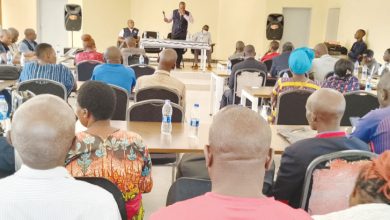Authority for revision of 2018 water resources regulations
National Water Resources Authority (NWRA) has unveiled plans to revise the water resources regulations of 2018 to ensure deterrent penalties are imposed for contravention of the guiding principles and enhance operational standards.
NWRA executive director Engineer Dr. Dwight Kambuku said this in Blantyre yesterday during a half day meeting with editors and media managers from the Southern Region to appraise them on the operations of the authority.
He said: “There are many offences which our clients are committing which include but not limited to discharge of wastewater without NWRA permit, abstraction of water without authorisation of NWRA and the contravening rights after suspension, variation or diminution of the right, but unfortunately, penalties associated to that can’t be considered as a deterrent as the offenders, are opting to pay the fine and continue polluting the environment.”

Kambuku cited the current penalties which range from K1 million to K10 million and a daily penalty of K10 000 after missing the given time of honouring the charge.
He said in most circumstances, the authority has noted that some culprits prefer to pay the penalties and continue with the violation, a scenario which puts both the environment and the consumers’ health at risk.
“The rev i s ion of the regulations will aim at putting in place the punitive punishments to all offenders. However, it has to be understood that the aim is not to punish individuals or companies but to force them not to tamper with the water sources and the water sites,” said Kambuku.
Speaking earlier, Malawi Editors Forum secretary general Gracian Tukula thanked NWRA for engaging the media and appealed to his colleagues to give attention to stories on water resources just as they do with political stories.
He said issues of water pollution are a big story and that it has no substitute as it is a cross cutting issue.
NWRA is mandated to develop principles, guidelines and procedures for the allocation of water resources among others




